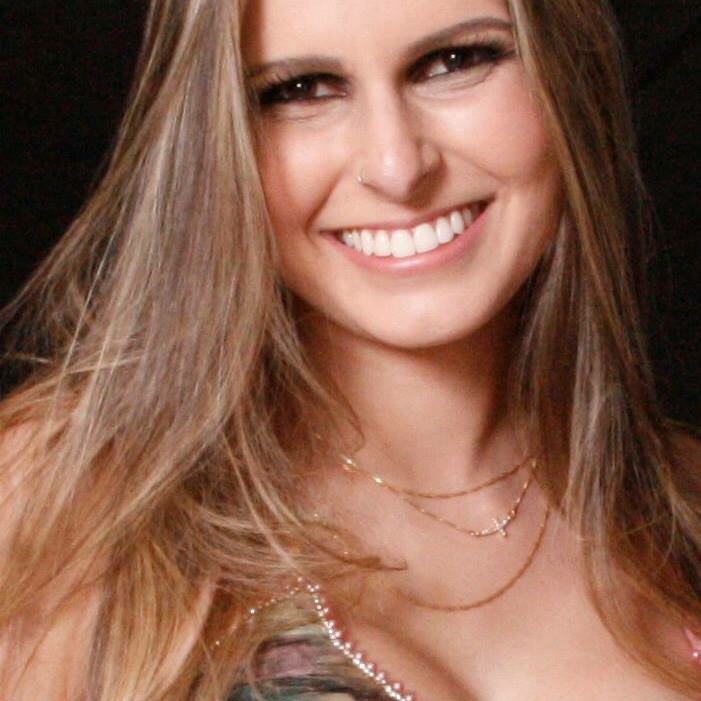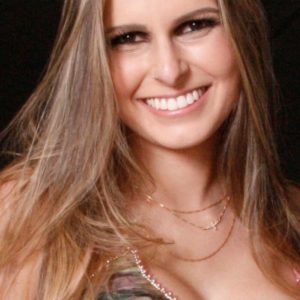

Raissa Guerra
This is our second interview of a two-part issue that depicts the partnership between the College of Engineering at Universidade Federal de Minas Gerais (UFMG) in Brazil and UC Berkeley. Through a series of interviews, the Sutardja Center for Entrepreneurship and Technology was able to shed light on the way in which Brazilian students were able to learn and have enriching experiences while in Berkeley. In our first issue we interviewed Karla Liboreiro, who wanted to change the ways in which universities teach entrepreneurship. Next is Raissa Guerra, an eager entrepreneur who wants to redefine the entrepreneurship mindset in Belo Horizonte and around Brazil. This is her story.
Raissa Guerra
What was your objective when you decided to come to Berkeley?
I came to Berkeley as a product of the partnership between the College of Engineering at UFMG and the Sutardja Center for Entrepreneurship and Technology. My focus was on two key objectives: developing my startup, named Nanobiotec, and understanding how entrepreneurship comes to be in an environment such as Silicon Valley.
Nanobiotec is an academic spin-off of the Technology Center of Carbon Nanotubes at UFMG. It’s objective is to expand the application of a fungicide into a different set of crops in order to solve one of the most prevailing problems in Brazilian agriculture: the resistance of crops to traditional fungicides’ active ingredients.
Before I came to Berkeley, we had our whole team structured and ready to go. Our team was comprised of three shareholders: two PhD microbiologists and myself, with a background in industrial engineering. Nanobiotec also had the support of a professor from UFMG, who served as a technical consultant and had developed the technological platform that was used as the basis for our research.
How was your 3 month stay here going to help your individual projects?
With my background in industrial engineering, my team and I agreed I was going to be responsible for exposing our startup to the Berkeley and Silicon Valley innovation and technology ecosystem. Our team had three main objectives in mind: striking a co-development partnership, accessing sources of finance that unfortunately are not that prevalent in Brazil, and networking to gain high-quality advice from top talent researchers and entrepreneurs.
I must say that even though my team was geographically split, we were able to strike a good balance between assigning individual goals to work independently and being responsive and present to help one another.
During my time here we were talking with multinationals as Bayer, Basf and FMC Agrotechnologies, that could be our partners. Also, a clear example of this is when I had to meet with venture capital investors focused on agritech and explain our technology deeply to them; I clearly wasn’t the one who knew the most about plant genetics on our team, so we had to call our microbiologists in Brazil who through a conference call were able to complement my knowledge about business with their technical know-how. Another example is meeting with investors in the US that ended up connecting us with their partners in Brazil. After the introductions were made, the partners were eager to go meet the PhD’s from Nanobiotec at the Technology Center of Carbon Nanotubes!
It is also important to say, however, that balance was not only needed internally between myself and my two partners; we also had to take into account the ways in which UFMG as a whole was going to benefit from the research and the development of our product. After all, the university is the holder of that initial patent that validated the strength of our technology for going after a sizable market with a smart strategy for commercialization.
What was the most important learning experience that you had while building and growing Nanobiotec during your time with Berkeley and with the SCET?
The first key thing that I realized here is that this environment allows you to have anything you want, if and only if you focus on your objectives and work really hard to achieve them. When I arrived here I had an intensive experience while attending the Bootcamp with an amazing team working on Nanobiotec’s project. We worked hard on the feedback we received during this process, and it was definitely worth it, because we ended up in third place of the entire Bootcamp. After this experience, I continued focusing on growing Nanobiotec.
However another key thing that I was able to learn through the process of bootstrapping Nanobiotec was that all progress and breakthroughs that we had were not going to be enough if all the critical stakeholders of the project were not aligned with the same objectives in mind. For example, in our own specific case, we realized that one of our critical stakeholders was envisioning the research to serve as a platform for further academic pursuits. On the other hand, others wanted to enjoy all the opportunities that came with developing the technology as fast as possible, aligning with market’s timing and needs. Unfortunately, this difference in opportunity perception had a great impact on our ability to envision a path going forward with our venture.
What about your experience in Berkeley? What are you taking back with you to Brazil?
I will try to emulate entrepreneurs and innovators from Silicon Valley a bit more. Simply put, people here are completely focused on developing technologies that are aligned with market needs and have the ability to bootstrap their ideas, believing they have the potential to change the world. Brazilians want and need to foster this mentality, and that is one of the primary reasons I came to Berkeley. I also strongly believe that UFMG and other top universities in Brazil have been able to develop great technical knowledge, and now they are looking for the business acumen that is essential for being successful in an entrepreneurial ecosystem.
I strongly believe that only in this way will we be able to make public investment in academic research that yields real value and meets current social needs. This combination is, in my opinion, one of the most valuable assets that we have to impact the world in an effective and positive way!
Are there any faculty members who inspired you to become a better entrepreneur, or professionals who you believe have the right mindset to launch the next big venture?
Naeem Zafar inspired me a lot with his career, passion for entrepreneurship and pragmatism to identify the ideas with potential from the ones that are not worth your time.
He is able to understand entrepreneurs because he has already lived the process of bringing an idea to the market many times throughout his career. The people who inspire me the most are the ones who have succeeded in applying their practical skills to their industry, and then go back to their universities to help other people become successful as well. I look up to him, and I know that even if I had to try many times, someday I want to be able to do for UFMG what Zafar has done for Berkeley.
I would also like to mention George Kopas, who was a very special mentor of mine. George helped me a lot during my time at Berkeley and became a role model for me both as a professional and a mentor. He has always been willing to help, and you can see how committed he is to others by looking at the many individuals he was mentored and that have become successful overtime. I hope I can someday be as great of a mentor for entrepreneurs as he was for me here!
“We should come up with more ways to make people with an entrepreneurial mindset and business acumen work together with university researchers in Brazil who already have a strong technical knowledge. I strongly believe that only in this way will we be able to make public investment in academic research that yields real value and meets current social needs. This combination is, in my opinion, one of the most valuable assets that we have to impact the world in an effective and positive way – Raissa Guerra – Master Student in Technological innovation and intellectual property at UFMG/Brazil
What do you see yourself doing after going back home? If you’re interested in helping the entrepreneurship ecosystem grow in Brazil, would you consider becoming a venture capitalist yourself and taking a chance in projects that might disrupt industries just like Nanobiotec?
As I shared with you before, I’ll continue trying to be successful in my own entrepreneurial journey. I’ll start my masters, focused on technological innovation, and I’ll try to figure out another project aligned with my entrepreneurial mindset. I also want to share with other students and entrepreneurs what I’ve been able to learn here at Berkeley. When I’m successful, I would like to go back to UFMG to help students, just as Naeem Zafar does, and act as an angel investor to provide capital and intensive mentoring for the projects that I believe have potential. I certainly believe that universities like UFMG are currently sitting on projects with huge potential, but do not approach them in a way that can make them grow. Once again, here is where having a business mindset and access to financial resources come into play. This is why when I succeed I see myself making a difference on these challenges, aiming to provide a clear path to market for technologies as disruptive as Nanobiotec.
I also wanted to share UFMG’s Engineering Professor Hermes Aguiar words about his experience at the SCET’s Bootcamp. After reading them carefully, you understand why it was so valuable to come here:
